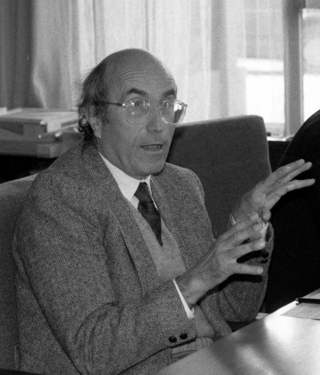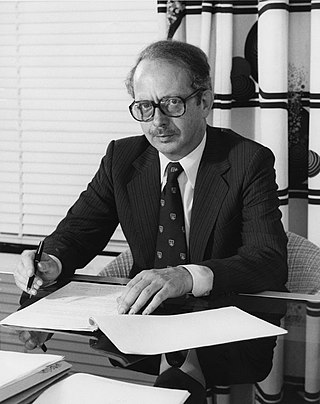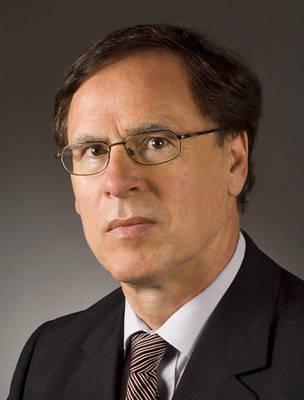Related Research Articles

Jürgen Habermas is a German philosopher and social theorist in the tradition of critical theory and pragmatism. His work addresses communicative rationality and the public sphere.

Niklas Luhmann was a German sociologist, philosopher of social science, and a prominent thinker in systems theory.

Ulrich Beck was a German sociologist, and one of the most cited social scientists in the world during his lifetime. His work focused on questions of uncontrollability, ignorance and uncertainty in the modern age, and he coined the terms "risk society" and "second modernity" or "reflexive modernization". He also tried to overturn national perspectives that predominated in sociological investigations with a cosmopolitanism that acknowledges the interconnectedness of the modern world. He was a professor at the University of Munich and also held appointments at the Fondation Maison des Sciences de l’Homme (FMSH) in Paris, and at the London School of Economics.

Ferdinand Tönnies was a German sociologist, economist, and philosopher. He was a significant contributor to sociological theory and field studies, best known for distinguishing between two types of social groups, Gemeinschaft and Gesellschaft. He co-founded the German Society for Sociology together with Max Weber and Georg Simmel and many other founders. He was president of the society from 1909 to 1933, after which he was ousted for having criticized the Nazis. Tönnies was regarded as the first proper German sociologist and published over 900 works, contributing to many areas of sociology and philosophy. Tönnies, Max Weber, and Georg Simmel are considered the founding fathers of classical German sociology. Though there has been a resurgence of interest in Weber and Simmel, Tönnies has not drawn as much attention.

Robert Michels was a German-born Italian sociologist who contributed to elite theory by describing the political behavior of intellectual elites.

Ralf Gustav Dahrendorf, Baron Dahrendorf, was a German-British sociologist, philosopher, political scientist and liberal politician. A class conflict theorist, Dahrendorf was a leading expert on explaining and analysing class divisions in modern society. Dahrendorf wrote multiple articles and books, his most notable being Class Conflict in Industrial Society (1959) and Essays in the Theory of Society (1968).

The Johannes Gutenberg University Mainz is a public research university in Mainz, Rhineland Palatinate, Germany, named after the printer Johannes Gutenberg since 1946. With approximately 32,000 students (2018) in about 100 schools and clinics, it is among the largest universities in Germany. Starting on 1 January 2005 the university was reorganized into 11 faculties of study.

Karl-Otto Apel was a German philosopher and Professor Emeritus at the University of Frankfurt am Main. He specialized on the philosophy of language and was thus considered a communication theorist. He developed a distinctive philosophical approach which he called "transcendental pragmatics."

Claus Offe is a political sociologist of Marxist orientation. He received his PhD from the University of Frankfurt and his Habilitation at the University of Konstanz. In Germany, he has held chairs for Political Science and Political Sociology at the Universities of Bielefeld (1975–1989) and Bremen (1989–1995), as well as at the Humboldt-University of Berlin (1995–2005). He has worked as fellow and visiting professor at the Institutes for Advanced Study in Stanford, Princeton, and the Australian National University as well as Harvard University, the University of California at Berkeley and The New School University, New York. Once a student of Jürgen Habermas, the left-leaning German academic is counted among the second generation Frankfurt School. He currently teaches political sociology at a private university in Berlin, the Hertie School of Governance.

Hans Joas is a German sociologist and social theorist.

Winfried Brugger was Professor of Public Law, Philosophy of Law and Theory of State at Heidelberg University.

The sociology of literature is a subfield of the sociology of culture. It studies the social production of literature and its social implications. A notable example is Pierre Bourdieu's 1992 Les Règles de L'Art: Genèse et Structure du Champ Littéraire, translated by Susan Emanuel as Rules of Art: Genesis and Structure of the Literary Field (1996).
Bernhard Ebbinghaus is a German sociologist and comparative social policy expert at the University of Mannheim.
Alexander Ebner is a German social scientist and Professor of Social Economics, esp. Economic Sociology and Political Economy at the Goethe University Frankfurt. His main research fields are Entrepreneurship and Innovation, Governance and Public Policy, Regional Development, and the History of Economics.
Heinrich Schmidt was a German archivist, naturalist, philosopher, professor and a student of Ernst Haeckel.
Rainer Eisfeld is a German political scientist and professor emeritus at the University of Osnabrück.
Cristina Lafont is Harold H. and Virginia Anderson Professor of Philosophy at Northwestern University.

Kevin B. Anderson is an American sociologist, Marxist humanist, author, and professor. Anderson is Professor of Sociology, Political Science and Feminist studies at University of California, Santa Barbara (UCSB). He was previously Professor of Sociology at Northern Illinois University, in DeKalb and Professor of Political Science, Sociology and Women's Studies at Purdue University.

Elena Esposito is an Italian sociologist who works in the field of social systems theory. She teaches general sociology at Bielefeld University (Germany) and prediction and the future of public policy at the University of Bologna (Italy). Her research is embedded in Luhmannian social systems theory.
Peter Václav Zima is a literary critic and a social scientist born in Prague 1946. He is of Czech-German origin and has dual nationality such as Austrian and Dutch. He is emeritus professor of the Alpen-Adria-Universität in Klagenfurt (Austria) where he held the chair of General and Comparative Literature from 1983 to 2012.